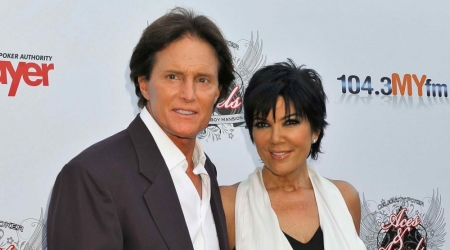Bruce Jenner Says 'I'm a Woman'; Southern Baptist Leader Responds by Pointing to Heresy of Gnosticism

As former Olympian athlete and reality television star Bruce Jenner reveals he may be seen as a "macho male" but "I'm a woman," Southern Baptist Convention's Russell Moore offers a solution to alienation from identities that transgender people struggle with.
"For all intents and purposes, I'm a woman," Jenner told ABC's Diane Sawyer in an interview that was aired Friday. "People look at me differently. They see you as this macho male, but my heart and my soul and everything that I do in life -- it is part of me. That female side is part of me. That's who I am."
Jenner also shared his internal struggles with being transgender.
"I look at it this way—Bruce always telling a lie. He's lived a lie his whole life about who he is. And I can't do that any longer," the 65-year-old former athlete said, though referring to himself using male pronouns.
"My brain is much more female than it is male. It's hard for people to understand that, but that's what my soul is," he added.
Russell Moore, president of the Ethics and Religious Liberty Commission of the Southern Baptist Convention, responded to the Jenner's interview.
"First of all, we should avoid the temptation to laugh at these suffering souls. We do not see our transgendered neighbors as freaks to be despised," Moore wrote on his website.
Moore suggested all could understand and identify with the struggles of the transgender.
"They feel alienated from their identities as men or women and are seeking a solution to that in self-display or in surgery or in pumping their bodies with the other sex's hormones. In a fallen universe, all of us are alienated, in some way, from who were designed to be. That alienation manifests itself in different ways in different people."
Understanding their struggles, however, doesn't mean we should "fall for the cultural narrative behind the transgender turn," Moore warned. "This narrative is rooted in the ancient heresy of Gnosticism, with the idea that the 'real' self is separate from who one is as an embodied, material being. Body parts and chromosomal patterns are dispensable since the self is radically disconnected from the body, the psychic from the material."
The problem is, he explained, that the old Gnostic heresy combined with contemporary expressive individualism gives rise to "the idea that I must be true to whomever I perceive my 'real me' to be on the inside in order to be 'authentic.'"
Moore added that the hope for Jenner, and others like him, "is not to alter the body with surgery or to flood their system with hormones." The answer, he wrote, is "to realize that all of us are born alienated from what we were created to be. We don't need to fix what happened in our first birth; we need a new birth altogether."
According to a 2003 study conducted in Sweden, transsexuals who change their gender through body mutilation or hormone therapy have a higher suicide rate than the general population.
The study, which followed 191 male-to-female gender reassignments and 133 female-to-male gender reassignments from 1973-2003, found that suicide attempts and in-patient psychiatric treatment actually increased in Sweden among those who had a sex change.
Peter Sprigg, senior fellow for policy studies at the Family Research Council in Washington on gender-identity issues, earlier pointed to a lack of proper counseling.
"Unfortunately, LGBT activists have been so successful in establishing ideological hegemony over the professions of psychology, psychiatry and increasingly, all of medicine, that when a child [or adult] has gender identity problems, it's difficult to find competent counseling to help overcome, rather than solidify, these problems," Sprigg said.
"Essentially, society is being forced to affirm a clear, physical, biological falsehood — the idea that someone with healthy male sex organs and normal male chromosomes can become a female, and vice versa," he said. "We are being told that when there's a conflict between a person's objective biological reality and their subjective feelings, it is the body that needs to be 'fixed.' This is utterly bizarre, and we should not be afraid to say so."





















